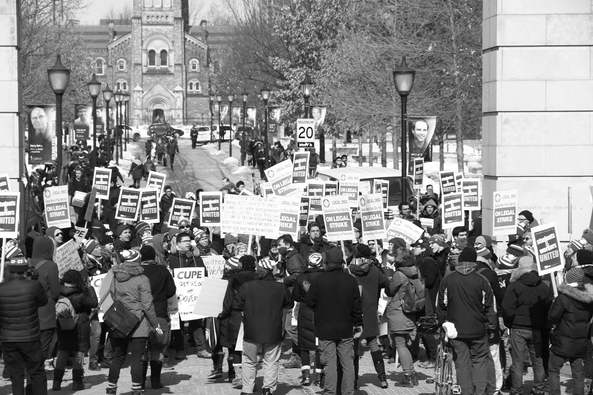By Zoe Todd
I have an ambivalent relationship to Anthropology. And an even more ambivalent relationship to the idea of decolonizing it.
I work in Canada. I am from Treaty Six Territory in central Alberta, from a city that bears the nehiyawewin (Plains Cree, Y Dialect) name amiskwaciwâskahikan. I am Métis on my dad’s side of my family, with roots that stretch back to Métis communities throughout present-day Manitoba, Saskatchewan, and Alberta. I offer this introduction so that you can place who I am, who I am related to, and which territories I am bound to through movement, stories and time. I do so in order to ensure that readers and interlocutors can locate my knowledge in its own complex relationality to the places that I and my ancestors come from and moved through. I also provide this information to foreground the focus of my piece, which is a meditation on the visceral decolonization of the academy – and anthropology—here in Canada.
I had planned to write a post about the challenges of bringing Black and Indigenous scholarship into the classroom and into our published work in Canada, a country convinced of its moral standing and human rights excellence, yet which is regularly and wilfully blind to its vexing colonial violence. But a young nehiyaw (Cree) man, twenty-two year old Colten Boushie from the Red Pheasant First Nation, was shot and killed on a prairie farm in Saskatchewan last week after he and his friends sought help for a flat tire. And everything I think about this weekend as I write this post keeps coming back to this horrific death, and the inter-related realities of Black and Indigenous death at the hands of police and settlers, and the erasure of Black and Indigenous scholarship here in the lands within which we teach anthropology across Canada (and across the border in the United States). And I keep thinking about the logics and structures of academia as ‘white public space’ (Brodkin et al 2011) which produce narratives that normalize and even obscure the life and death of racialized peoples in favour of an undeniably white canon that resuscitates and re-animates white bodies into our classrooms ad nauseum (as Sara Ahmed so succinctly describes here). Continue reading
